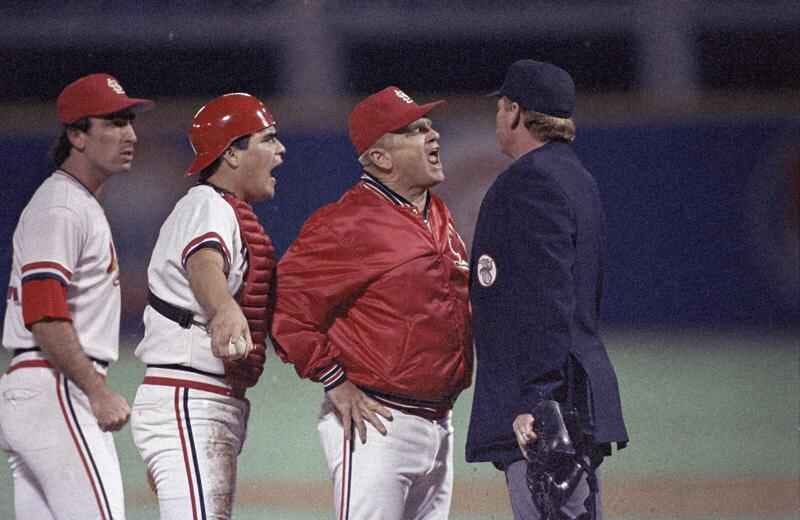If 'one of a kind' had to fit one Cardinal, Whitey Herzog would be a fine candidate
The revolutionary St. Louis Cardinals manager took baseball audiences to small ball town.
Why swing for the fences if you can slap a double into the gap, and then take third on the throwing error? A sacrifice fly later, and the game held a different score and feel. Stolen bases were sexier than home runs, and strong pitching was the backbone of the entire operation. I remember “Whitey Ball” fairly well, including the day it all went away.
As a young kid, the St. Louis Post Dispatch was the epicenter of an internet-less world. That’s where the news exploded, the feel of that hot ink hitting the hands in the morning. That day, the front page of the paper and its sports section informed the city that Whitey Herzog, the man who took the Cardinals to three World Series in a decade, was no longer the manager. He had decided to quit, unsatisfied with management’s direction, aka not re-signing vets like Vince Coleman and Willie McGee, and the idea of being a last place team.
In an uncharacteristic move that had already become a Whitey thing, the man called it quits the day before the fourth of July in 1990. Maybe he didn’t want to manage in the 90s, since his tactical approach infused the identity of the Cardinals so much. He could have been tired. Whatever happened, Herzog implanted a way of manufacturing runs that was unheard of. Before Billy Beane took Bill James’s philosophy to the tenth degree, Whitey taught the world that small ball could win a lot of games.
He was ruthless, cocky, and direct-and that’s from the gaze of a diehard fan. I fell in love with the Cardinals while they were under Herzog’s watch. He was the first manager I recognized for actually brandishing his own code and conduct of managing a ballclub. He wasn’t a robot, instead creating new ways for baseball players to be productive and for less flashy teams to become famous.
Love or hate their ways, St. Louis has seen some great managers in my lifetime. Herzog, Tony La Russa, Joe Torre even in his short tenure. It’s less of a thing these days for a manager to truly run things. Think of it as running point on a basketball court, directing traffic and setting up the play. Herzog won 1,281 games and the Manager of the Year award once. One can’t forget the 1982 title, or the following bittersweet defeats.
If you think about it, Herzog entraps all the miseries and joys of being a Cardinals fan. The audacity to do things differently, and the willingness to know when to get out of the game. It’s not like he went very far away from it.
Herzog remained a lover of the game and the Cardinals all the way up until his passing on Monday at the age of 92. He commented on the game with local broadcasters, participated in commercials, and showed up with a red coat and smile on opening day. He stuck around, keeping a connection going strong with older baseball fans in the region who knew the difference between a manager and a robot.
Herzog’s brand of ball was fast-paced, relentless, and electrifying to watch. Speed had never been more lethal, and a stellar defense put the idea of runs saved into people’s minds. As Derrick Goold wrote, it was fast and fun. That kind of stuff lives on.
He embraced the over-the-hill types like my first favorite baseball player, Pedro Guerrero. Herzog most likely passed away STILL hating Don Denkinger. He was loud and proud of a game that most deemed too slow. He made it faster, better, and memorable enough to still feel a chill and get a thrill when a runner broke for second base.
Rest in power, Whitey Herzog.



Great read Dream!
Whitey and Gussie were the best of my Cardinal life, but for my Manual Scoreboard Family!
Whitey is in the same sentence as Musial, Gibson and Shannon, Ozzie and Pujos.
And who can forget when he grabbed Templeton and pulled him into dugout and traded him immediately.
May the Great White Rat rest in peace.
Oh to have a Manager and Owner who cared about The Cardinal Legacy again!
Dead but prayin for Whitey